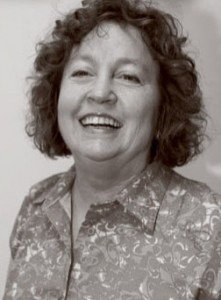Looking back, farm life was good
On The Way
By Olivia Fowler
When we were children we’d sit out on Grandmama’s front porch and watch the cropduster fly straight towards the house as the cotton dust fell over cotton rows that stretched out to the horizon.
The plane looked as though it would come straight through the sycamore trees in the front yard then hit the house. The pilot cut it pretty fine. At the last minute, just before flying into the power lines on the road’s edge he would swoop up, clear the lines and the tops of the sycamore trees then up over the porch roof. We could see the belly of the plane. We always thought we’d be able to touch it if we were on the roof, but that may have been wishful thinking. Then the pilot would loop around the field behind the house and fly back over the rooftop, the trees and the power lines before swooping down and dusting another long section of cotton.
We weren’t aware of the dangers of breathing in all that cotton dust but just sat in the porch chairs and watched the show. We could never really be sure he wouldn’t hit something so we tried to be really alert to any danger. We were all set to rescue if needed.
Those were the years when cotton, tobacco, soybeans and lespedeza were good money crops. Uncle Jack grew all of those, plus watermelons for the market.
We’d hear Uncle Jack early every morning striding down the hall headed for the kitchen for a cup of hot coffee. He worked from dawn to dusk. He always wore khakis, a cap, sunglasses and workboots. In winter he’d add a jacket. He smelled of gasoline and oil, fertilizer and hay, and tobacco smoke. A pack of Lucky Strikes was always in his shirt pocket. He’d come into the front hall, slam the screen door and race down the hall.
Grandmama would always call out, “Don’t slam the door.” But she was always too late with this instruction.
He was a bundle of energy, thin and wiry with a smile and a sense of humor that would entertain a dead man.
He loved farming. I often watched him walk out into the field and scoop up a handful of dirt. He’d study it, smell it and rub it between his fingers. I wish I’d thought to ask him why he did this.
He didn’t just plant seeds. He planted hope and expectations.
Spring on the farm was an exciting season. We knew the end of May marked the end of the school year, and we were so ready for school to end.
Even before school was out, the first sound heard early each morning was the sound of tractors cranking and leaving for the fields.
Late each afternoon, we’d run out the driveway to the edge of the front yard. In the distance we’d see Leroy coming down the road on the Super M. When he got to the edge of the front yard he’d stop the tractor and let us climb on. We’d latch on to him like monkeys, and he’d let us ride with him into the barnyard.
There was never a time on the farm when a child would be heard to say, “I don’t have anything to do.” We would certainly never have said it even if it had occurred to us. One of the rules enforced on the farm was “If you’re old enough to walk, then you’re old enough to work.”And Grandmama would often tell us, “Idle hands are the devil’s workshop.” We knew if we weren’t busy we’d better look busy.
Children were used to fetch and carry, run messages out to the barn, gather eggs, slop hogs, feed chickens, and pick whatever needed picking in the garden. When canning time came, we washed jars, peeled and chopped vegetables, carried supplies and ingredients wherever they were needed and would find Uncle Walter’s walking cane and false teeth.
We were useful and felt good about it. Looking back, I see what a great gift the adults gave us when we were given responsibilities we could not shirk. It was and is a great life lesson, and I thank them for it.




























